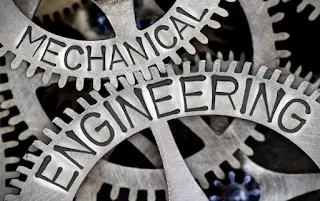About Mechanical Engineering
Mechanical engineering, the branch of mechanical engineering concerned with the design, manufacture, installation and operation of engines and machines, as well as with production processes. Mechanical Engineering deals with the design, manufacture, testing, and improvement of mechanical systems that are used in just about every industry you can think of.
In all technical fields and in all industries, mechanical engineers are involved in almost all stages of design, synthesis, development and improvement of machines, processes and systems. Mechanical engineers play a key role in a wide range of industries, including automotive, aerospace, biotechnology, computing, electronics, microelectromechanical systems, energy conversion, robotics, automation, and manufacturing. Mechanical engineers are usually involved in the production, distribution, and use of energy; material processing; management and automation of production systems; design and development of machines; and solving environmental problems.
Mechanical engineering is the study, design, development, construction, and testing of mechanical and thermal sensors and devices, including tools, motors, and machines. Mechanical engineers seek new knowledge through creative research, design and development, and through the creation, control, management and sale of devices and systems needed by society. Mechanical engineering is a broad, versatile and creative discipline concerned with the transformation of energy into useful work; design, development, production and testing of machines; and interaction of solids, liquids and gases.
Mechanical engineers design, develop, build and test a variety of mechanical equipment, tools, motors and machines. They must also be able to use computers, CAD (Computer Aided Design) and CAM (Computer Aided Manufacturing) to create and analyze their designs and control product quality.
In addition to core areas including mechanical, mechanical engineers use tools such as computer-aided design (CAD), computer-aided manufacturing (CAM) and product lifecycle management to design and analyze manufacturing facilities, industrial equipment and machinery, heating and cooling systems. transport systems, aircraft, watercraft, robotics, medical devices, weapons, etc. The technical areas that form the main basis of the work of mechanical engineers include mechanics, energy transfer and conversion, design and production, and engineering sciences. Mechanical engineers conceive, plan, design, and direct the production, distribution, and operation of a wide variety of devices, machines, and systems for energy conversion, environmental control, material handling, transportation, material handling, and other purposes.
Materials engineers attempt to design, process, and test materials in order to create new materials that meet certain mechanical, electrical, and chemical requirements. Nuclear engineers also develop the tools and processes needed to work safely with radiation and other highly sensitive materials.






